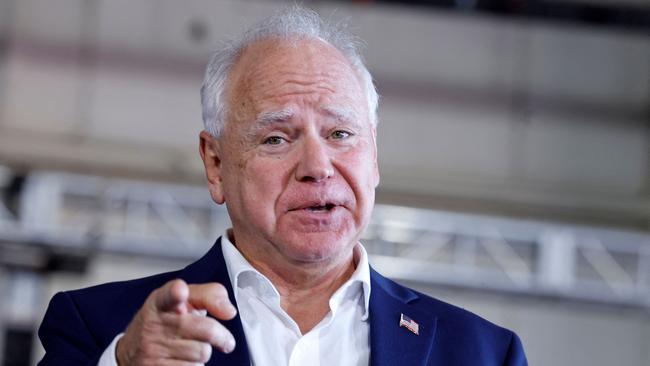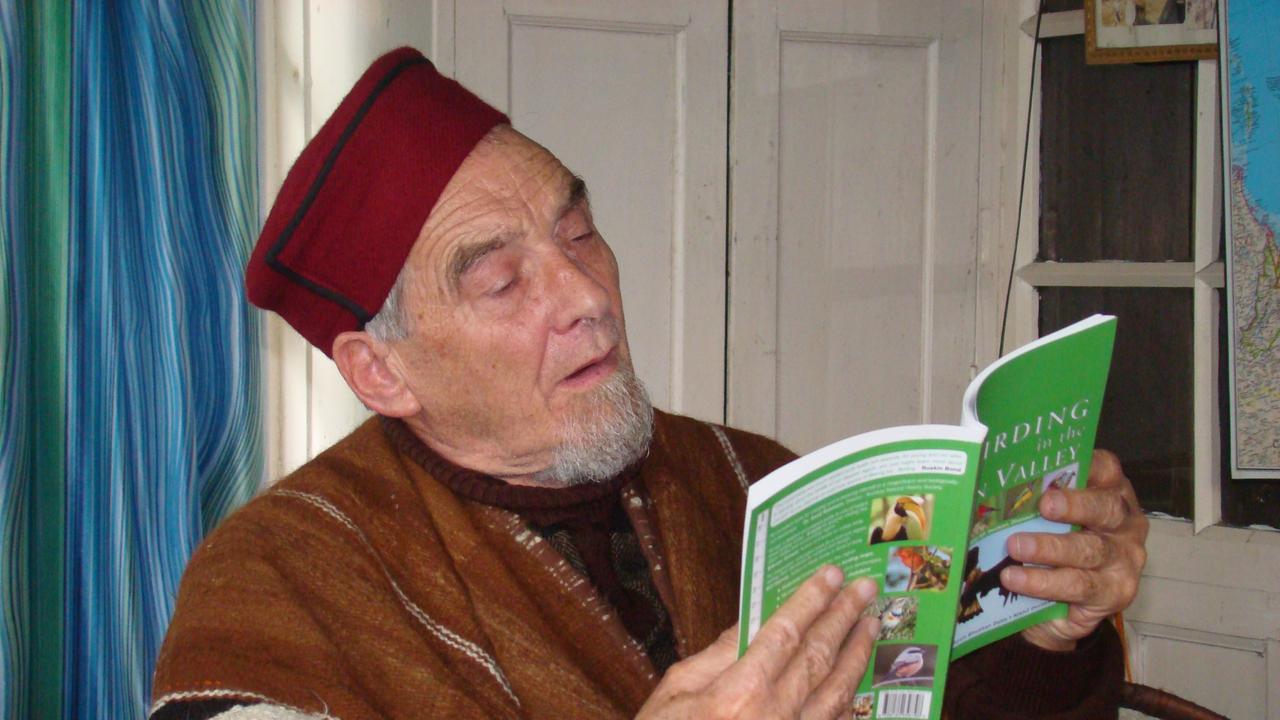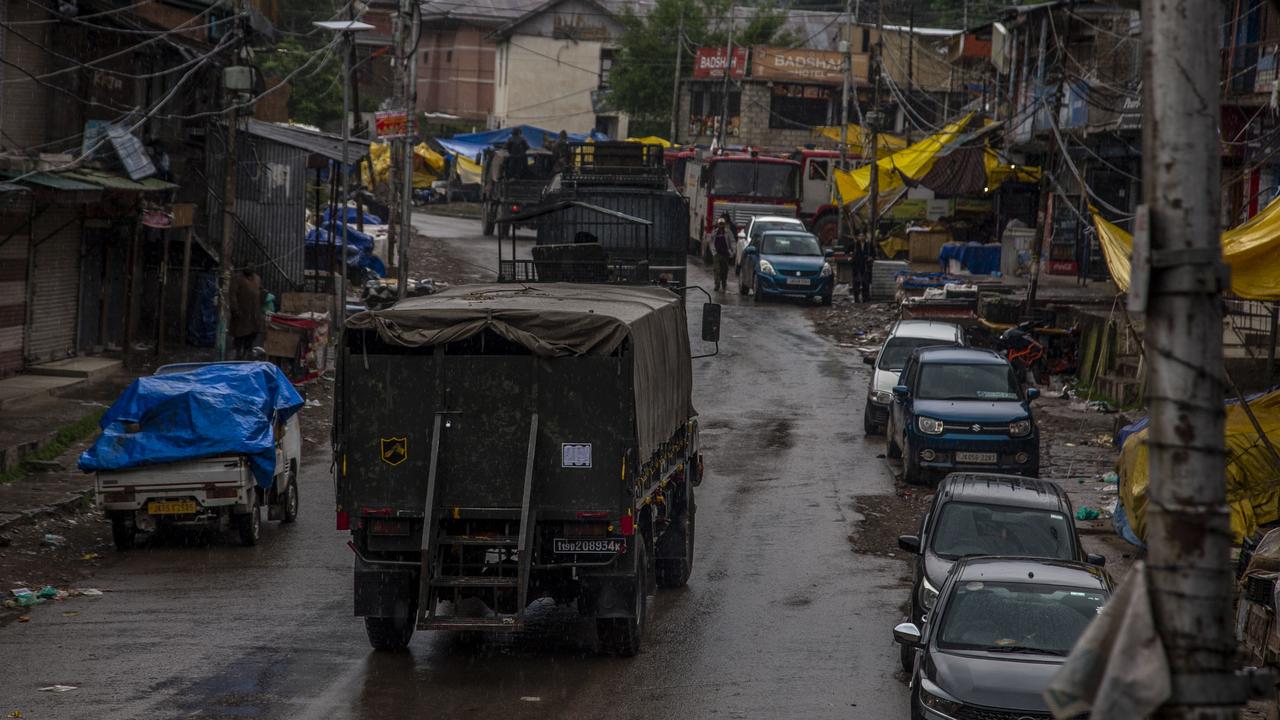Tim Walz’s China ties raise questions on both sides
Republicans have called him ‘soft on communism’ while Chinese internet users have speculated that Kamala Harris’s running-mate may have been a CIA agent.

The long relationship that Tim Walz, the new Democratic Party vice-presidential candidate, has with China has led to attacks both from the US and Beijing.
Mr Walz taught for a year in China from 1989 to 1990, has continued to visit regularly since and has argued for the need to engage with the country.
This has led to Republicans calling Kamala Harris’s running-mate “soft on communism”.
JD Vance, Mr Walz’s Republican counterpart, who has made attacks on US relations with China a keystone of his campaign, accused him of wanting to “ship more manufacturing jobs to China”.
Others in Donald Trump’s orbit spoke more aggressively.
“Communist China is very happy with Governor Tim Walz as Kamala’s VP pick,” Richard Grenell, who was Trump’s ambassador to Germany, wrote on X. “No one is more pro-China than Marxist Walz.”
That was not the view of some in China, where Mr Walz’s long record of speaking up for dissidents, including exiles from Hong Kong, has been noted. He broke a taboo for Beijing by meeting the Dalai Lama in 2016, and has also criticised China’s relationship with Russia in light of Vladimir Putin’s war in Ukraine.
The Chinese government, which has been meticulous in trying to present a neutral face towards the US presidential election, refused to comment on Mr Walz personally. That in itself could in most cases be regarded as a snub, given that a previous interest in China is normally at least noted if not actively welcomed. A statement expressed a bland hope for better relations whoever won the election.
But some Chinese internet users noted that Mr Walz arrived in China in 1989. Though they did not mention the Tiananmen Square massacre of that year directly, which would automatically lead to a post being censored, they wondered whether he may have been a “CIA agent” involved in stirring the protests up.
Mr Walz, 60, worked as a teacher for a year in his mid-twenties in Foshan, in southeast Guangdong province on the mainland opposite Hong Kong.
“China was coming, and that’s the reason that I went,” he later told The Hill.
He was in Beijing and witnessed some of the Tiananmen Square protests. The experience was striking enough that he chose to get married on the fifth anniversary of the massacre – a deliberate choice his wife, Gwen Whipple, once told an interviewer.
During his subsequent teaching career in the US he continued to run work placements for American students in China.
At the same time, he took a prominent stance on human rights causes. He co-sponsored a House of Representatives motion condemning the arrest of Liu Xiaobo, the veteran activist who won the 2010 Nobel peace prize before dying while on medical parole from cancer.
In 2019, Mr Walz also co-sponsored the Hong Kong Human Rights and Democracy Act, which demanded US sanctions on anyone found to have overseen human rights abuses in the former British colony.
However, he has also argued against pursuing a policy of containing Chinese economic growth through a trade war, with President Joe Biden and Mr Trump both promising tougher tariffs on Chinese imports.
Chinese analysts argue that whoever wins the US election is unlikely to make a great difference to China policy, which is often driven by events rather than ideology.
However, Mr Walz’s dual approach to China represents a good example of the traits that have often resulted in the great advances in US-China relations that have happened under Republican presidents, most notably Richard Nixon’s outreach to Mao Zedong in 1972.
Communist Party leaders tend to find open hostility, matched with what they view as pragmatism on human rights, easier to predict and deal with than a desire for engagement accompanied by progressive Democratic activism on what they regard as “Chinese internal affairs”.
THE TIMES



To join the conversation, please log in. Don't have an account? Register
Join the conversation, you are commenting as Logout